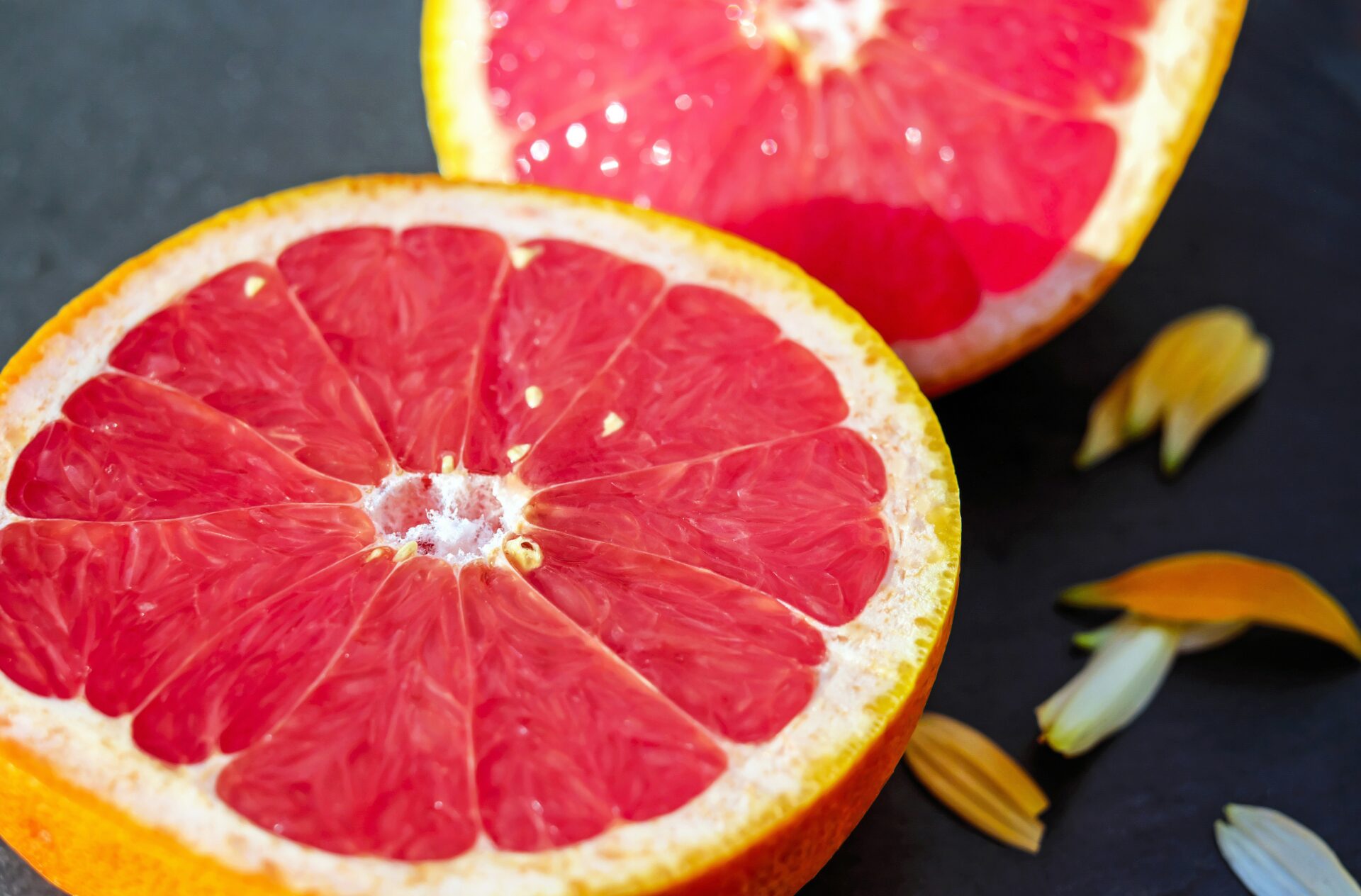Nuts and seeds are some of the most nutritious foods that nature has to offer. They are packed with essential vitamins, minerals, healthy fats, and fiber that are essential for maintaining good health. Besides, nuts and seeds are a versatile addition to any diet, as they can be eaten as a snack, added to meals, or used to make delicious and healthy recipes. In this article, we will explore the many benefits of eating nuts and seeds, including how they can help to improve heart health, lower cholesterol levels, reduce inflammation, and even aid in weight loss. Whether you are a health enthusiast or just looking to improve your diet, read on to discover how nuts and seeds can help you achieve optimal health and wellness.
The Nutritional Value of Nuts and Seeds
Nuts and seeds are an excellent source of essential nutrients, including healthy fats, proteins, vitamins, and minerals. They are a great addition to a healthy diet and offer various health benefits. Here are some of the key nutrients found in nuts and seeds:
Healthy Fats
Nuts and seeds are high in healthy fats, including monounsaturated and polyunsaturated fats, which are essential for maintaining good health. These fats help to reduce inflammation, lower cholesterol levels, and improve heart health.
Proteins
Nuts and seeds are also a good source of plant-based proteins, making them an excellent choice for vegetarians and vegans. Proteins are essential for building and repairing tissues in the body, and they also help to maintain healthy hair, skin, and nails.
Vitamins and Minerals
Nuts and seeds are rich in various vitamins and minerals, including vitamin E, magnesium, zinc, and potassium. Vitamin E is a potent antioxidant that helps to protect cells from damage caused by free radicals. Magnesium is essential for healthy bones and muscles, while zinc plays a vital role in immune function. Potassium helps to regulate blood pressure and maintain healthy heart function.
Fiber
Nuts and seeds are also a great source of dietary fiber, which is essential for maintaining good digestive health. Fiber helps to promote regular bowel movements, reduce constipation, and lower the risk of developing various chronic diseases.
Incorporating nuts and seeds into your diet is an excellent way to boost your nutrient intake and reap the health benefits they offer. However, it is essential to be mindful of the potential risks and precautions associated with consuming nuts and seeds, especially if you have any allergies or medical conditions.
The Health Benefits of Consuming Nuts and Seeds
Including nuts and seeds in your diet can offer various health benefits, including:
Reduced Risk of Chronic Diseases
Studies have shown that consuming nuts and seeds regularly can lower the risk of developing chronic diseases, such as type 2 diabetes, heart disease, and certain types of cancer. This is due to their high content of healthy fats, fiber, vitamins, and minerals that help to reduce inflammation, lower cholesterol levels, and improve overall health.
Improved Heart Health
The healthy fats found in nuts and seeds, such as omega-3 fatty acids and monounsaturated fats, can help to lower the risk of heart disease by reducing inflammation, improving cholesterol levels, and reducing blood pressure. Eating nuts and seeds regularly has been shown to improve heart health and reduce the risk of cardiovascular disease.
Weight Management
Despite being high in calories, nuts and seeds can help with weight management when consumed in moderation. This is because they are rich in fiber, protein, and healthy fats, which can help to keep you feeling full and satisfied for longer, reducing the likelihood of overeating.
Better Brain Function and Cognitive Health
Nuts and seeds are rich in antioxidants, healthy fats, and essential nutrients, which can help to improve brain function and cognitive health. Studies have shown that consuming nuts and seeds regularly can improve memory, concentration, and overall brain function.
Reduced Inflammation
Nuts and seeds are a great source of antioxidants, which can help to reduce inflammation in the body. Chronic inflammation has been linked to various chronic diseases, including heart disease, cancer, and autoimmune disorders. Eating nuts and seeds regularly can help to reduce inflammation and prevent the development of these diseases.
Overall, incorporating nuts and seeds into your diet can offer various health benefits. They are a great source of essential nutrients, healthy fats, and fiber, which can help to reduce the risk of chronic diseases, improve heart health, aid in weight management, and boost brain function and cognitive health. However, it is essential to be mindful of the potential risks and precautions associated with consuming nuts and seeds, especially if you have any allergies or medical conditions.
The Role of Nuts and Seeds in Weight Management
Nuts and seeds are often considered high-calorie foods, but research suggests that they can play a beneficial role in weight management.
Fiber Content
Nuts and seeds are naturally high in fiber, which can help to keep you feeling full and satisfied for longer periods. This can help to reduce overall calorie intake and prevent overeating, leading to weight loss or maintenance.
Healthy Fats
Nuts and seeds are also high in healthy fats, such as monounsaturated and polyunsaturated fats. These fats can help to reduce hunger and cravings, making it easier to stick to a healthy diet and maintain a healthy weight.
Protein Content
In addition to fiber and healthy fats, nuts and seeds are also a good source of protein. Protein is an essential nutrient that helps to build and repair tissues in the body, including muscles. Consuming protein can also help to reduce hunger and increase feelings of fullness, leading to a reduced calorie intake and weight loss.
Portion Control
Although nuts and seeds can be beneficial for weight management, it is essential to practice portion control. Nuts and seeds are high in calories, and consuming too much can lead to weight gain. A serving size of nuts or seeds is typically one ounce, or about a handful.
Incorporating nuts and seeds into your diet can be a great way to support weight management. They are high in fiber, healthy fats, and protein, which can help to reduce hunger and increase feelings of fullness. However, it is essential to practice portion control to avoid overconsumption and potential weight gain.
The Impact of Nuts and Seeds on Heart Health
Heart disease is a leading cause of death worldwide, but incorporating nuts and seeds into your diet can help to reduce your risk of developing this condition.
Healthy Fats
Nuts and seeds are high in healthy fats, such as monounsaturated and polyunsaturated fats. These fats can help to reduce inflammation in the body, lower cholesterol levels, and improve overall heart health. Consuming nuts and seeds regularly has been shown to reduce the risk of heart disease and improve heart function.
Fiber Content
The fiber content of nuts and seeds can also play a role in heart health. Fiber helps to reduce cholesterol levels in the blood, which can help to prevent the buildup of plaque in the arteries. This, in turn, can reduce the risk of heart disease and stroke.
Minerals and Antioxidants
Nuts and seeds are also rich in minerals and antioxidants, including magnesium, potassium, and vitamin E. These nutrients can help to regulate blood pressure, reduce inflammation, and protect cells from damage caused by free radicals.
Portion Control
While nuts and seeds can be beneficial for heart health, it is important to practice portion control. Nuts and seeds are high in calories, and consuming too much can lead to weight gain, which can increase the risk of heart disease. A serving size of nuts or seeds is typically one ounce, or about a handful.
Incorporating nuts and seeds into your diet can be an easy and delicious way to support heart health. They are high in healthy fats, fiber, and essential nutrients that can help to reduce the risk of heart disease and improve heart function. However, it is important to practice portion control and avoid overconsumption to maintain a healthy weight and reduce the risk of heart disease.
The Benefits of Nuts and Seeds for Brain Function and Cognitive Health
Nuts and seeds are not only good for physical health but can also offer various benefits for brain function and cognitive health.
Antioxidants
Nuts and seeds are rich in antioxidants, which can help to protect brain cells from damage caused by free radicals. This, in turn, can help to reduce the risk of cognitive decline and improve overall brain function.
Healthy Fats
The healthy fats found in nuts and seeds, such as omega-3 fatty acids and monounsaturated fats, can help to improve brain function and cognitive health. These fats can help to reduce inflammation in the brain, improve blood flow, and enhance memory and learning.
Essential Nutrients
Nuts and seeds are also a good source of essential nutrients, such as vitamin E and magnesium, which are important for brain health. Vitamin E is a potent antioxidant that helps to protect brain cells from damage, while magnesium is essential for healthy brain function and can help to reduce the risk of cognitive decline.
Protein Content
Nuts and seeds are also a good source of protein, which is important for building and repairing tissues in the body, including the brain. Consuming protein can also help to improve mood and cognitive function.
Incorporating nuts and seeds into your diet can be an easy and delicious way to support brain function and cognitive health. They are high in antioxidants, healthy fats, essential nutrients, and protein, all of which can help to reduce the risk of cognitive decline and improve overall brain function.
The Role of Nuts and Seeds in Reducing Inflammation and Preventing Chronic Diseases
Inflammation is a natural process in the body, but chronic inflammation has been linked to various chronic diseases, such as heart disease, cancer, and autoimmune disorders. Nuts and seeds can play a beneficial role in reducing inflammation and preventing these conditions.
Antioxidants
Nuts and seeds are rich in antioxidants, which can help to reduce inflammation in the body. Antioxidants help to neutralize free radicals, which can cause inflammation and damage to cells. Consuming nuts and seeds regularly can help to reduce inflammation and prevent chronic diseases.
Healthy Fats
The healthy fats found in nuts and seeds, such as omega-3 fatty acids and monounsaturated fats, can also help to reduce inflammation in the body. These fats can help to reduce the production of inflammatory molecules and improve overall health.
Fiber Content
The fiber content of nuts and seeds can also play a role in reducing inflammation. Fiber helps to promote the growth of healthy gut bacteria, which can help to reduce inflammation in the body. Fiber also helps to reduce the absorption of sugar and cholesterol, which can contribute to inflammation.
Minerals and Vitamins
Nuts and seeds are also a good source of minerals and vitamins, which can help to reduce inflammation and prevent chronic diseases. For example, magnesium and zinc are essential minerals that can help to reduce inflammation, while vitamin E is a potent antioxidant that can help to protect cells from damage.
Incorporating nuts and seeds into your diet can be an easy and delicious way to reduce inflammation and prevent chronic diseases. They are high in antioxidants, healthy fats, fiber, minerals, and vitamins, all of which can help to promote overall health and reduce inflammation in the body.
The Benefits of Nuts and Seeds for Skin and Hair Health
Nuts and seeds are not only good for your overall health, but they can also do wonders for your skin and hair. Here are some of the benefits of consuming nuts and seeds for skin and hair health:
Nuts and Seeds are Rich in Vitamins and Minerals
Nuts and seeds are packed with essential vitamins and minerals that are beneficial for healthy skin and hair. For instance, almonds are rich in vitamin E, which is an antioxidant that helps to protect the skin from damage caused by free radicals. Sunflower seeds, on the other hand, are rich in vitamin B6, which is essential for healthy hair growth.
Nuts and Seeds are a Good Source of Healthy Fats
Nuts and seeds are a good source of healthy fats, which are essential for healthy skin and hair. For instance, walnuts are rich in omega-3 fatty acids, which help to keep the skin hydrated and prevent dryness. Flaxseeds are also rich in omega-3 fatty acids and can help to prevent hair breakage and promote healthy hair growth.
Nuts and Seeds Help to Reduce Inflammation
Inflammation can cause a range of skin and hair problems, including acne, eczema, and hair loss. Nuts and seeds are rich in anti-inflammatory compounds that can help to reduce inflammation in the body. For instance, pumpkin seeds are rich in zinc, which has anti-inflammatory properties that can help to reduce inflammation in the skin.
Nuts and Seeds Help to Improve Skin and Hair Texture
Nuts and seeds are rich in nutrients that help to improve skin and hair texture. For instance, sesame seeds are rich in zinc, which can help to improve skin elasticity and reduce the appearance of fine lines and wrinkles. Brazil nuts are also rich in selenium, which can help to improve the texture and strength of hair.
The Best Ways to Incorporate Nuts and Seeds into Your Diet
Incorporating nuts and seeds into your diet is an easy and delicious way to reap their health benefits. Here are some of the best ways to incorporate nuts and seeds into your diet:
Add Nuts and Seeds to Your Breakfast
One of the easiest ways to incorporate nuts and seeds into your diet is to add them to your breakfast. You can sprinkle some chia seeds or flaxseeds on top of your oatmeal or yogurt, or add some chopped nuts to your smoothie.
Use Nuts and Seeds as a Snack
Nuts and seeds make a great snack that is both satisfying and nutritious. You can pack a small bag of mixed nuts or seeds to snack on throughout the day or add them to your trail mix for a portable and healthy snack.
Make Your Own Nut Butter
Making your own nut butter is a great way to incorporate nuts into your diet. You can make almond butter, peanut butter, or any other nut butter you like. It’s a great alternative to store-bought spreads that may contain added sugars and preservatives.
Add Nuts and Seeds to Your Salads
Adding nuts and seeds to your salads is a great way to add some crunch and flavor while also boosting the nutritional value of your meal. You can add some sliced almonds, pumpkin seeds, or sunflower seeds to your salad for a delicious and nutritious meal.
Use Nuts and Seeds in Your Cooking
Nuts and seeds can also be used in cooking to add flavor and nutrition to your meals. You can use ground nuts or seeds as a coating for chicken or fish or add them to your stir-fry for some extra crunch.
The Potential Risks and Precautions Associated with Consuming Nuts and Seeds
While nuts and seeds are generally considered to be healthy foods, there are some potential risks and precautions associated with consuming them. Here are some things to keep in mind:
Allergies
Nuts and seeds are common allergens, and some people may have severe allergic reactions to them. If you have a nut or seed allergy, it’s important to avoid consuming them altogether. If you’re unsure whether you have an allergy, talk to your doctor or allergist.
Potential for Overconsumption
Nuts and seeds are high in calories and fat, which means that overconsumption can lead to weight gain. It’s important to keep portion sizes in mind when consuming nuts and seeds and to limit your intake if you’re trying to manage your weight.
Potential for Contamination
Nuts and seeds can become contaminated with bacteria, such as Salmonella, during harvesting, processing, or storage. It’s important to purchase nuts and seeds from reputable sources and to store them properly to minimize the risk of contamination.
Phytic Acid
Nuts and seeds contain phytic acid, which can bind to certain minerals, such as calcium, iron, and zinc, and prevent them from being absorbed by the body. While this is generally not a concern for people with a balanced diet, those who consume a large amount of nuts and seeds may be at risk of mineral deficiencies.
Conclusion
While nuts and seeds are generally considered to be healthy foods, there are some potential risks and precautions associated with consuming them. It’s important to be aware of these risks and to take steps to minimize them, such as purchasing nuts and seeds from reputable sources, storing them properly, and keeping portion sizes in mind. By consuming nuts and seeds in moderation and with caution, you can enjoy their many health benefits while minimizing the potential risks.





Leave a reply